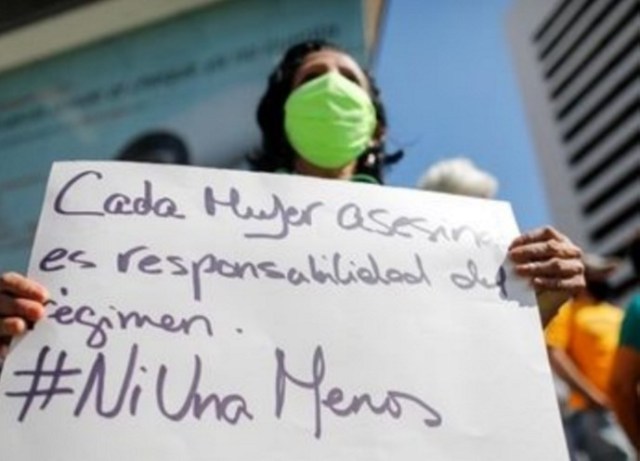
The latest figures on femicides in Venezuela show organized crime is one of the main drivers of violence against women, with community leaders, family members of criminals, and workers in illicit economies particularly vulnerable.
By Insight Crime
Feb 6, 2023
During 2022, the Venezuelan non-governmental organization Utopix registered 236 femicides in the country, and 68 femicides of Venezuelan women outside the country. Just four states — Miranda, Carabobo, Zulia, and Bolívar — accounted for nearly half of the recorded femicides in Venezuela.
While a majority of the murders were perpetrated by current or former partners, violence related to organized crime is the second biggest driver of femicides in Venezuela and abroad.
In 2022, 30 murders were linked to criminal groups in the country, most of them in Miranda, Carabobo, Táchira, and Zulia. In Colombia and Perú, where most of the femicides outside the country were registered, at least four were directly linked to organized crime.
Although femicides were codified as a distinct crime in a 2014 law typified as, “The right of women to a life free from violence,” there are no official reports on the number of women that are killed by violence in the country. This leaves groups such as Utopix reliant on press reports. Femicides that are not reported by media outlets may be excluded, making the true number of deaths likely higher, according to Aimee Zambrano, the coordinator of the unit in Utopix that monitors femicides.
Organized crime contributes to femicides in various ways.
To begin with, criminal groups often threaten or harm women because of their relationships with members of rival gangs or security forces, targeting romantic partners and family members as a way to send messages to their enemies.
“What we see is that women’s bodies end up being the spoils of the wars between gangs,” said Zambrano.
There were several cases over the last year that fit this pattern. In September, the wife of an alleged extortionist in La Cañada de Urdaneta, a town in Zulia, was killed by hitmen in her home. Months earlier, in May, the mother of a criminal leader known as “El Rayao” in Morón, Carabobo was killed by her son’s enemies. It seems neither woman was directly involved in the criminal activities of their families.
Other times, territorial disputes between criminal groups leave women who are community leaders vulnerable, as they are targeted by groups looking to spread fear and assert their social control. In Miranda, for example, a woman who was a member of the local subsidized food distribution committee was killed after she was accused of providing information to the police, according to local media reports.
“They commit these crimes precisely as a way of intimidating women who are doing community work,” said Zambrano. “It is a form of intimidating everything that makes up the social fabric.”
Finally, there are attacks on women who are those participating in illicit economies, which accounted for the highest percentage of organized crime-connected femicides chronicled by Utopix. In the state of Amazonas, for instance, one woman who worked at an illegal mining camp, according to press reports, was among the five people killed in a massacre near the Brazilian border.
In the Colombia-Venezuela border, women working as carretilleras, a term used for those carrying goods across illegal crossing points, were also targeted by armed groups. In April, the National Liberation Army (Ejército de Liberación Nacional – ELN) was accused of kidnapping and murdering a Venezuelan woman on the border between Colombia and Venezuela, for failing to pay an extortion fee to the group, and in December, a woman who worked as a carretillera was found dead at an illegal crossing point.
Venezuelan women working for organized crime groups in Colombia are also at high risk. A Venezuelan woman linked with microtrafficking was murdered in the city of Bucaramanga, Santander, and another was killed by hitmen in Soledad, Atlántico, as she was allegedly collecting extortion money for the Rastrojos Costeños group.
Sex workers are also common victims of organized crime groups. In Perú, Venezuelan sex workers are routinely targeted by Los Gallegos, a cell of the Tren de Aragua. One woman was murdered and another one was injured during an attack police claim was related to a turf war between Los Gallegos and a Peruvian gang, while another sex worker was killed for allegedly refusing to pay an extortion fee to an unnamed criminal group.
…
Read More: Insight Crime – Violence Against Women Regular Tactic for Venezuela Criminal Groups
…

